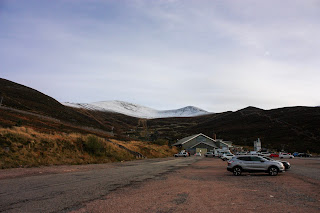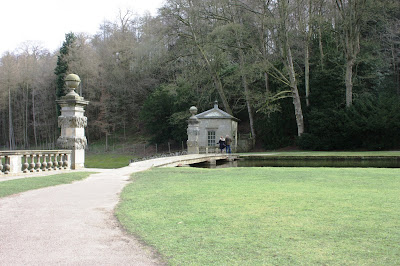I saw two similar Facebook posts yesterday, both asking what we are grateful to God for in 2019 and what we are hoping for in 2020. I always think gratitude is a good discipline to have, especially when things aren't so good. So I thought it would be good to genuinely reflect on this and write something meaningful on the theme of gratitude and hope.
2019 - gratitude
Andy and Ruth's wedding
Forever photographically etched onto my brain, is the image of Andy's face when we told him we had to move back to the UK. The fear in his eyes matched the pain in my heart. Andy and I moved back on 14th June 2013. The first Sunday back, we went to church and that morning, Andy met Jonny. Almost instantly, they became best friends. It turned out they were both starting sixth form college in September and that was where Andy met Ruth. Jonny and Ruth had been friends for many years. It wasn't long before Andy and Ruth were dating.
When Andy gave his speech at the wedding, he talked about the time they all met and how Ruth saved him during this most difficult time in his life. The wedding itself was just beautiful. There was a strong focus on this being a marriage of three... no not Jonny... a real acknowledgement that God was in this marriage too. Given that Jonny was not able to be at the wedding, which was live streamed to the ward where he was having yet more chemo, I felt that the whole day was a real statement of faith. Their relationship, their friendships were based on some of the real tough stuff of life, and yet Jesus was still at the centre of it all. It is lovely when our prayers are answered the way we want them to be, but I think there is something utterly amazing that happens when we stand on our faith even when life doesn't dish up what we ordered.
So the first thing I am grateful for is Jonny and Ruth and their respective families.
New job
In September 2013, I started studying for my Master of Arts in Online and Distance Education (MAODE). I graduated in May 2018 and began looking for a change of career - a move from teaching into eLearning design and development. 2019 began knowing that I was starting my new job at the end of January. Whilst learning a completely new role hasn't been without its challenges, I love what I do now. I particularly enjoy the nature of project work, seeing a whole project from beginning to end and having a finished product that I can be proud of.
I was a little shocked that almost immediately after starting this job as a junior learning designer, both of the seniors left. I was even more shocked to find that when I mentioned possibly applying, the manager practically bit my hand off. So after 5 weeks in the job, I got promoted and have been working with our main client almost all year.
I think many of us will have undertaken some form of eLearning - GDPR, health and safety - at work. Somebody obviously created all those generic training packages. That's unlikely to have been me. I make bespoke products for a very specific client group. So when they identify a gap in knowledge or a working behaviour that needs to change, they ask me to build an eLearning package on that theme. Sometimes those themes can be quite difficult and challenging stuff but I like knowing that real people doing a very difficult job will be using what I produce and that it will help equip them for the daily realities of their role.
So the second thing I am grateful for is my new job.
Family and Liggy
It sort of goes without saying that I'm grateful for my family and friends... but this year, I have felt it more than usual. In the years following my cauda equina syndrome, adjusting and adapting to living with a disability, I have gone through something that is referred to as the grief cycle. This is often presented as a graph - a nice, neat graph with a start and end point. It goes up, then down and finally goes up at the end. This has not been my experience of grief and disability. For me, it would be more like drawing the two axes for the graph and then handing a 3 year old a pencil. My grief cycle has been more of a scribbled mess than a nice neat graph! Sure, there have been many good times, positive times, times of achieving things... but there has also been pain, physical pain, tiredness, frustration and fear. At those times, it has been so important to have my family around.
I'll start with Neil and Liggy. They are with me all the time and enable life to go on, with a reasonable degree of independence. I honestly cannot imagine life without them both. I often think back to our wedding and that promise to love in sickness and in health. This situation, though related, is neither. I'm not sick but it's not health either. Sickness either gets better or ends your life. Disability is different. It doesn't get better or worse... you just have to eventually come to terms with its permanence. Of course, as a Christian, I believe in healing... I've seen healing... but God doesn't heal everyone of everything. That has been part of my journey but is too personal to share. All I will say is that I have peace with the situation as it is and am confident that God will use it rather than remove it. In living with this, Neil and Liggy have been my constant support and strength. Neil somehow juggles the very challenging situation of being 100% husband, 100% carer and also working full time. I honestly don't know how he does it! Liggy has the advantage of being all dog. She never tuts, sighs or shows disapproval. She just picks up after me, dresses and undresses me and looks into my eyes with love as I shovel fishy treats into her mouth. It's a beautiful relationship!
My wider family play a different role. I sometimes feel that nobody just treats me like a normal person. Nobody knows the real me. Nobody expects me to achieve anything. My family are different. They know the real me... the me that is nothing to do with sticks, crutches and wheelchairs. When I cross the road for no apparent reason, they saw the big bunch of nettles and understood why I crossed. When I come in from the garden, faster than my legs or wheels will carry me, they know that a wasp appeared three gardens down the street. They know the good stuff too. They know that I can teach a child to read and write and do maths, even when everyone else has given up on them. They know that once I have decided to do something, I will fight to achieve it with everything in me and will stop at nothing to do what I believe is the right thing to do. My family always start from the assumption that I can, whereas most other people start by assuming I can't.
My family has been through everything. Love, separation, divorce, remarriage, halves and steps - so many you forget who is who... and yet, we all get on well, enjoy spending time together, somehow negotiate the minefield of various allergies so that nobody gets sick from a family meal. And there is so much love. That's why I am grateful for my family. I should say 'and friends' but to me, my closest friends are family. Family can't just be about blood. If it was, I would have a very small family. But I don't. I have a big family!
So finally, the most important thing... I am grateful for being part of a big, loving family.
2020 - Looking forward
The question asked was what I want God to do in 2020.
Jonny
Andy's best friend Jonny is still in hospital and although there is light at the end of the tunnel, he's still very poorly. If God only does one thing this year (which I seriously doubt) I would love to see Jonny fully recovered and back to his usual cheeky self. I can't wait for that day when we do something fun... all of us together. There will be food, music, laughter... and most of all, loads of banter!
Church
Yesterday, we went to our eldest son's church, the church we went to when we first moved back to the UK. It's just that bit too far for us now. It's a 90 min drive minimum each way. The welcome we received was amazing though. When this was our church, we were fully involved in the life and community there. Although I regret that I never joined the worship group, as that is where my heart really lies, I did youth work, led parenting courses, just normal stuff. It's also a church full of normal people. I don't mean normal Christians. There is such a mix of people there... including a seriously nutty element. What they lack is Kelloggs people. You know what I mean? Like the Kelloggs adverts - mummy and daddy and 2.4 children, all sitting down together for breakfast. The perfect family! I don't think there is a perfect family there. It's a place where it's okay to just be who you are. Vulnerability and reality are important, and that leads to the kind of hugs we got yesterday... the kind of hug that whispers a thousand words... that communicates that I have missed you soooo much! I've been through something and I wish you'd been here to walk through it with me...
We're kind of settled in a church. It's a nice church with lots of nice people. We know people... their names, at least. I wouldn't say we're involved though. We visit on Sunday mornings. That is partly because we meet in a rented space. We don't have our own building yet. But maybe it's also because the church lacks nuts. I don't think we have a non-normal element... and that disturbs me slightly.
So in 2020, I would like one of two things to happen. Either a miraculous move back to where we used to live, so that we can move back to nutty-land. Or for our church to reach out to those who haven't got it all together... the hurting, the vulnerable, those who are mentally ill, those who have nothing, those who really need a saviour.
Looking further ahead, the fact that we have to drive a minimum of 45 mins (30 miles) to access an Elim church, just seems wrong to me. I would love to see a day when every Elim church... when every church... is accessible. It's not just about step-free access, though that would be a good start. Toilets, the auditorium, the style of the service... not just for wheelchair users but for everyone... Yesterday, we witnessed a church where so many people had physical impairments but they could get in and access church. That's what all churches should be like. Jesus did once allude to the idea that it's those who haven't got it all together that need him most. It seems wrong that our buildings so often shut out those who need him most... and where the buildings don't, the people sometimes do.
So what I want to see in 2020 is an improvement in accessibility to church, not just for me but for everyone.















